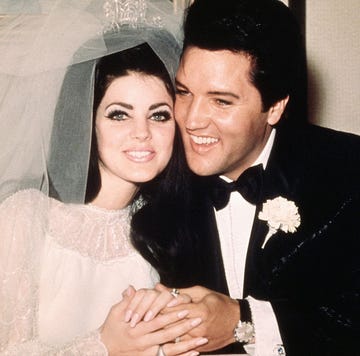(1923-2000)
Who Was Tito Puente?
Tito Puente, donned the "King of Latin Jazz," was a pioneering force in Latin music, known for fusing styles and putting a big-band spin on traditional Latin music. In 1948, Puente formed a band that would become known as the Tito Puente Orchestra. A decade later, he released his best-selling album, Dance Mania (1958). His most notable songs include "Babarabatiri," "Ran Kan Kan" and "Oye Como Va." By the end of his decades-long career, Puente was deemed a musical legend in Latin music and jazz circles.
Early Life
Famed jazz composer and bandleader Tito Puente was born Ernesto Antonio Puente Jr. in New York City on April 20, 1923. Puente grew up in New York City's Spanish Harlem and became a professional musician at age 13. He learned to play a number of instruments as a child, beginning with the piano and then moving to percussion, saxophone, vibraphone and timbales (paired high-pitched drums).
After an apprenticeship in the historic Machito Orchestra, Puente was drafted into the U.S. Navy and served during World War II.
Latin Music Sensation
Returning to New York in 1945, Puente used money from the G.I. Bill to study at New York City's famed Juilliard School. In 1948, he formed a band that would later become known as the Tito Puente Orchestra. By the 1950s, the band was attracting large crowds and Puente, subsequently, became known as a Latin music sensation.
In 1958, Puente released his best-selling album, Dance Mania, and more hit records soon followed, with notable songs including "Babarabatiri," "Ran Kan Kan" and "Oye Como Va." Fans enjoyed the way Puente put a big band spin on traditional Latin dances, mixing Latin sounds with jazz and other genres. Puente later added other Latin and Afro-Cuban rhythms to his repertoire, including cha-cha, merengue, bossa nova and salsa, and his continuous experimentation and creativity earned him a reputation as a musical pioneer.
Throughout his career, which spanned more than five decades, Puente performed with a number of leading jazz performers, including George Shearing and Woody Herman, as well as with many stars of Latin music. In later years, he performed with many symphony orchestras.
Puente received numerous awards for his work, including five Grammy Awards, the first of which he won in 1979 for the album Homenaje a Beny, a tribute to Benny Moré. (His 1976 album The Legend had been nominated for a Grammy in 1977, and he would receive seven more nominations by the mid-1990s.) Puente went on to garner two more Grammys in the 1980s, for the more traditional Latin jazz albums On Broadway and Mambo Diablo, and picked up a fourth in 1990 for Goza Mi Timbal.
In 1999, Puente was awarded an honorary degree at Columbia University. The following year, he received a Latin Grammy Award (best traditional tropical Latin performance) —his fifth Grammy — for Mambo Birdland.
Other Projects
In addition to music, Puente remained dedicated to causes affecting the Latin community throughout his lifetime. In 1979, he created a scholarship fund for Latin percussionists at the Juilliard School. "The scholarship was a dream of mine for a long time," Puente later said, explaining, "In the Latin community, we have a lot of gifted youngsters who don't get an opportunity to develop their talent because of a lack of money. Long after, I'm gone, the fund will be helping kids."
More than a decade later, Oscar Hijuelos created a character based on Puente for his 1989 novel The Mambo Kings Play Songs of Love (Puente appeared as himself in the 1992 film adaptation of the book). Around this same time, the jazz musician guest-starred on several television shows, including The Simpsons.
Death and Legacy
By the end of his decades-long career, Puente, sometimes called the "King of Latin Jazz" or simply "El Rey" ("The King"), made an indelible mark on the popular culture. In addition to making more than 100 albums and creating more than 200 compositions, Puente had become a highly revered musician, regarded as a musical legend in Latin music and jazz circles.
Puente died on May 31, 2000, at the age of 77, in a New York City hospital where he was awaiting heart surgery. Adored by fans across the globe, several supporters waited in line for days to say goodbye to the popular bandleader. He was survived by wife Margaret Acencio, his partner for 30 years; their two children, Tito Jr., a musician, and Audrey, a newscaster; and a son named Richard, also a musician, from his earlier relationship to Ida Carlini.
QUICK FACTS
- Name: Tito Puente
- Birth Year: 1923
- Birth date: April 20, 1923
- Birth State: New York
- Birth City: New York
- Birth Country: United States
- Gender: Male
- Best Known For: Tito Puente was a musical pioneer, mixing musical styles with Latin sounds and experimenting in fusing Latin music with jazz.
- Industries
- Music
- Astrological Sign: Taurus
- Schools
- The Juilliard School
- Death Year: 2000
- Death date: May 31, 2000
- Death State: New York
- Death City: New York
- Death Country: United States
Fact Check
We strive for accuracy and fairness.If you see something that doesn't look right,contact us!
CITATION INFORMATION
- Article Title: Tito Puente Biography
- Author: Biography.com Editors
- Website Name: The Biography.com website
- Url: https://www.biography.com/musicians/tito-puente
- Access Date:
- Publisher: A&E; Television Networks
- Last Updated: October 28, 2021
- Original Published Date: April 2, 2014
QUOTES
- There's a lot of young people out there who need to develop their talents, and old-timers like me have to give them space.
- 'I have not taken a vacation in my whole life ... Have you ever known a musician to take a vacation? You know when you're on vacation? When the phone don't ring.'
- It's not only what you learn in the streets—you've really got to go and study.
- In the Latin community, we have a lot of gifted youngsters who don't get an opportunity to develop their talent because of a lack of money. Long after, I'm gone, the fund will be helping kids.











